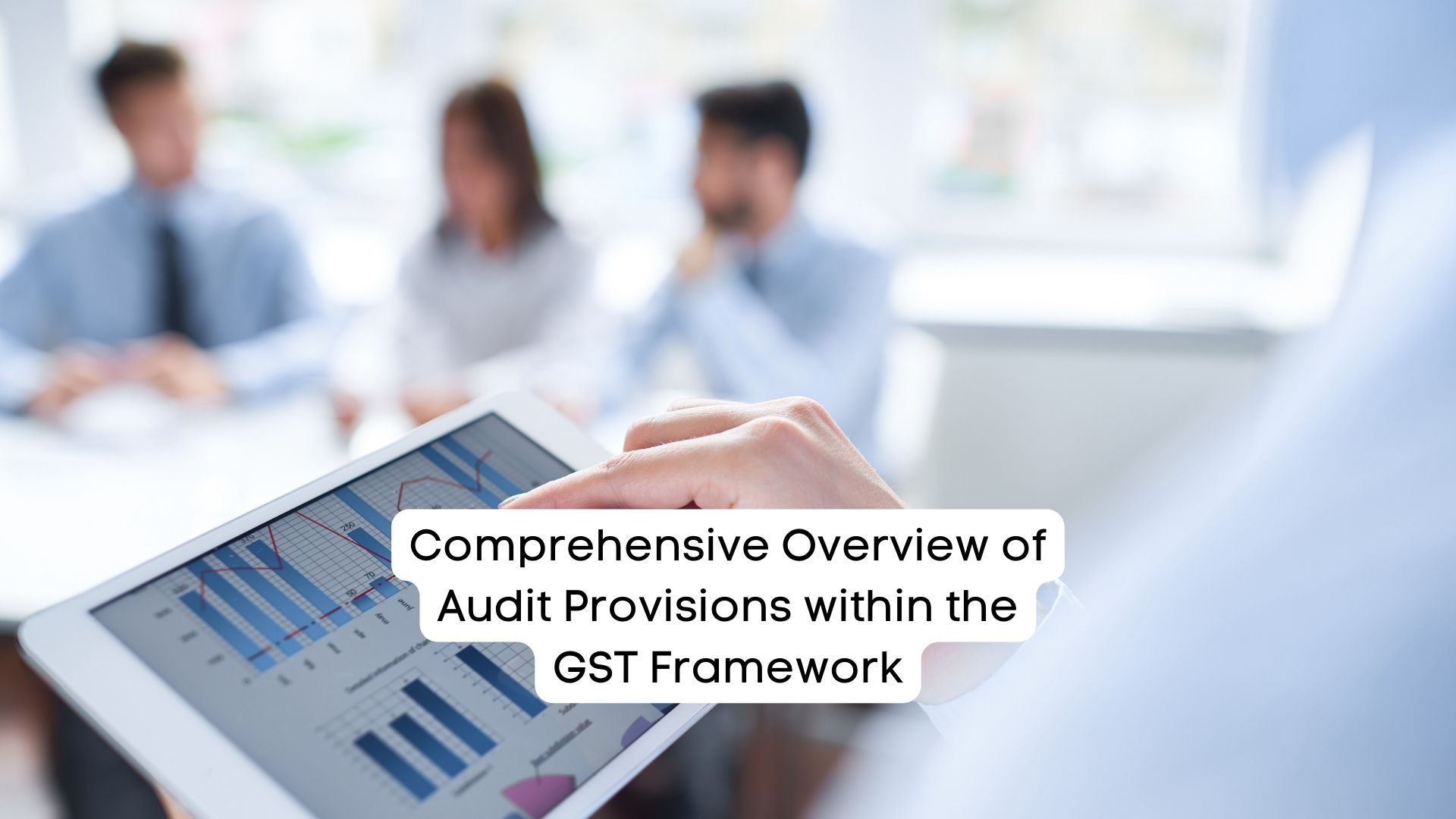
20 Feb Comprehensive Overview of Audit Provisions within the GST Framework

The implementation of the Goods and Services Tax (GST) in India has brought about significant changes to the country’s indirect tax structure. Among the key components of GST are its audit provisions, which grant authorities the power to examine the financial records and activities of taxpayers. This article aims to delve into the audit provisions under the GST Act, encompassing various types of audits, eligibility criteria, procedural aspects, and their significance for businesses. A thorough understanding of these provisions enables taxpayers to navigate the audit process effectively, mitigate non-compliance risks, and establish robust GST compliance mechanisms.
Understanding Audit Provisions under the GST Act:
The essence of audit provisions within the GST framework is to ensure compliance with statutory requirements, including the accuracy of tax returns, tax payments, and adherence to legal obligations. As per Section 2(13) of the CGST Act, an audit entails an examination of records, returns, and other documents to verify turnover, taxes paid, refund claims, input tax credit availed, and overall compliance with the law.
Types of GST Audits:
- Mandatory GST Audit: Applicable until 01/08/2021, this audit, as per Section 35(5), mandates professionals to conduct audits for taxpayers exceeding specified thresholds.
- Departmental GST Audit: Conducted by tax authorities under Section 65 of the CGST Act.
- Special Audit: Authorized by Section 66, this audit addresses discrepancies and potential tax evasion instances.
- Additional audit types include Limited Scrutiny and Taxpayer-Initiated audits.
GST Audit Based on Assessee Turnover by CA or Cost Accountant:
Taxpayers surpassing the turnover threshold must engage chartered accountants or cost accountants for auditing purposes, as stipulated by Section 35(5) of the CGST Act. Submission requirements include audited annual accounts, reconciliation statements, and other prescribed documents.
GST Audit by Tax Authorities:
Under Section 65, tax authorities may conduct audits to ensure tax compliance. The audit’s scope, whether general or specific, dictates its focus and duration. Notification precedes the audit, and findings are communicated within specified timelines. Any discrepancies may lead to penal actions as per relevant sections of the CGST Act.
Special Audit by Tax Authorities:
Authorized by Section 66, this audit involves designated chartered accountants or cost accountants to address tax evasion suspicions. Procedures for special audits, including reporting and extensions, are outlined, ensuring thorough scrutiny and compliance.
Penalties Post Special Audit by GST Appointed Expert:
Upon completion of a special audit, penalties may be imposed for proven tax disparities or fraudulent activities, as permitted by Sections 73 and 74 of the CGST Act. The process involves evidence evaluation and penalty assessment, with stringent actions against tax fraud and evasion.
Limited Scrutiny Audit:
Conducted in cases of suspected GST law violations, limited scrutiny audits aim to verify compliance with statutory requirements, ensuring accurate tax reporting and adherence to legal obligations.
Taxpayer-Initiated Audit:
Initiated voluntarily by taxpayers, these audits aim to ensure compliance with GST provisions, including accurate tax filing and payment, fostering transparency and proactive adherence to legal requirements.
Conclusion:
In summary, audit provisions within the GST framework are integral to promoting compliance and transparency in taxation. By subjecting businesses to various audits, authorities can verify financial accuracy, assess compliance, and detect fraud. For businesses, compliance with audit provisions is crucial to avoid penalties, maintain accurate reporting, and foster trust with authorities. By upholding meticulous records, cooperating with auditors, and rectifying discrepancies, businesses contribute to a robust GST ecosystem in India.


No Comments